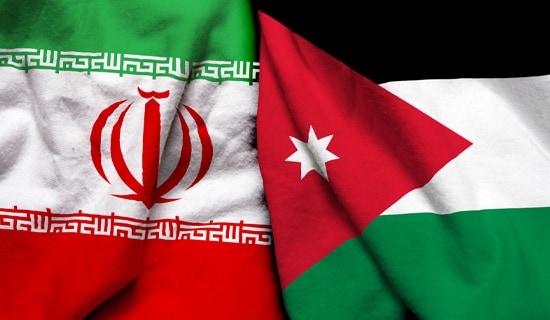A Saudi-Syrian media spat has emerged over the issue of Syrian President Bashar Al-Assad's attendance at the Union for the Mediterranean conference in Paris. On July 15, 2008, the liberal Arab e-journal Elaph reported that Syria had prevented the circulation of that day's issue of the Saudi-owned Al-Hayat daily in the country, because of an article that the Syrians found objectionable. The article, by Saudi writer Daoud Al-Shiryan, accused the Syrian regime of hypocrisy, on the one hand promoting revolutionary slogans while on the other attending the conference and sitting at the table with Israel.[1] The next day, the official Syrian Al-Watan daily published an article attacking "some Arabs" who pick fights with Syria.
Following are excerpts from the two articles:
Syria, Then and Now
The article by Daoud Al-Shiryan that led to the banning of the July 15 issue of Al-Hayat in Syria read:
"At the founding meeting of the Union for the Mediterranean in Paris, Syrian President Bashar Al-Assad sat smiling and happy at the same table with Israeli Prime Minister Ehud Olmert. But he found it difficult to meet with President Hosni Mubarak, and he greeted him tepidly and diffidently – as though Egypt were the one occupying the Golan – even though [Egypt] has offered up thousands of martyrs to liberate the land and for the sake of the Arabs' honor.
"This painful contradiction, illustrated in a simple matter of protocol, has cost us greatly.
"Three decades ago, there was talk of a project similar to the Union for the Mediterranean, whose goal was to change the Arab League system into a 'Middle East League' that would include, alongside the Arab states, Israel, Turkey, and Iran.
"This was violently rejected, as it was considered a project for the recognition of the existence of the Hebrew state. And Syria was at the head of the front of steadfastness and resistance to that iniquitous imperialist colonialist project.
"Yet here is Syria today, graciously bestowing on us [the news] that it has accepted Turkey as an intermediary for the sake of establishing relations with Israel; and it has exchanged [its relations with] the Arabs for the sake of attending to its relations with Iran; and it has hastened to establish relations with Israel."
"The Revolutionary Regimes in the Arab World Are One Big Painful Lie"
SUPPORT OUR WORK

"Is this insatiable Syrian [appetite for] surrender a result of Damascus' jihad and struggle against the iniquitous Israeli aggression? This is a rhetorical question. In the last 30 years not even an ant has moved on the Syrian-Israeli border.
"Despite the Syrian clamor about struggle, resistance, and rebellion, Damascus has always resembled its ally Iran in its dealings with the struggle against the usurping enemy: It 'sells' it to others, but doesn't take it itself.
"Syria has sided with [sowing] division among the Palestinians and the Lebanese and upbraiding the Egyptians… It goes out in angry demonstrations, but then, in the end, it becomes clear that it serves the interests of the occupier.
"The trajectory of the Syrian political regime, which has arrived at its current state at the expense of all the slogans it has raised up over half a century, is the best proof that the revolutionary regimes in the Arab world are one big painful lie…"[2]
"What Is Astonishing Is that Some Arabs Would Join the Zionist Chorus in Europe"
The next day, July 16, the official Syrian daily Al-Watan published an article by 'Isa Al-Ayyubi attacking "those Arabs who are picking fights with Syria":
"The French media – most of which, as we know, is under Zionist tutelage – and some of the Arab media found in [Assad's state trip to Paris] an opportunity to unload all of their personal hatreds…
"We can understand that the international Zionist hawks would act to stop any rapprochement between any European capital and an Arab capital – and Damascus in particular – and mobilize every means and tool, concoct matters of dispute, and fabricate distorted memories…
"And we can understand that some French people are alarmed when they see President Sarkozy – Sarkozy, who placed himself on the side of American tutelage and classified himself as a true friend of the American administration and Israel – moving towards an historic reconciliation with Syria, regardless of what political regime it is under, and who its president is…
"[And they are alarmed that Sarkozy] is bringing together the presidents of Lebanon and Syria as brothers and not as enemies, after they worked for years to erase this picture from Lebanon's and Syria's historical memory…
"But what is astonishing is that some Arabs would join the Zionist chorus in Europe, and in France in particular. While everyone knows that the domestic Arab situation [i.e. the Saudi-Syrian relation] is not good, what does this tattered domestic [situation] have to do with the strategic steps being taken by the world today, and by Syria together with it?"
"President Assad Became the Star of Paris and of the Mediterranean"
"But it is not difficult for observers to understand that some of the Arabs and their media are behaving foolishly and that everything they are doing in this matter produces the opposite of what they intended.
"They wanted what the Zionist faction wanted and what the opponents of President Sarkozy wanted. On the basis of their dispute with President Assad, they laid bare all their hatreds and spilled out, in one stroke, all their poisons, which were [then] picked up by [Syria's] strategic enemies.
"In this way, President Assad became the star of Paris and of the Mediterranean. He was, incontestably, the real event, and he will remain for a very long time part of regional political events, and even local [politics] in France.
"Is Syria's return to the international community, even in the context of a debate over its role, what was intended by those Arabs who are picking fights with Syria and who are bent on marginalizing it and isolating it, in the Arab world and internationally? Definitely not. But this is what happened, because of their solidarity with the Zionist media lobby and Sarkozy's domestic opponents."[3]
[1] www.elaph.com, July 15, 2008.
[2] Al-Hayat (London), July 15, 2008.
[3] Al-Watan (Syria), July 16, 2008.




